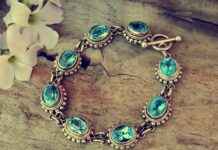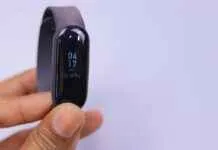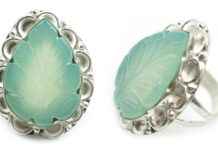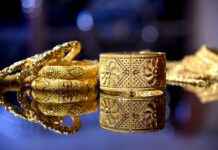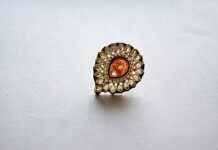Searching for Jewelry Appraisal Near Me? You’re in the right place to uncover expert tips that help you unlock the true value of your precious gems and heirlooms. Whether you’re selling, insuring, or simply curious about your jewelry’s worth, finding a trusted professional jewelry appraisal service nearby can make all the difference. But how do you know if the appraisal you’re getting is accurate or just another estimate? Let’s dive into the must-know secrets to ensure you get the best appraisal experience, right in your local area.
Many people underestimate how important it is to choose the right certified jewelry appraiser near me—did you know that not all appraisals are created equal? Some might overlook key details like the diamond’s cut, clarity, or metal purity, leaving you with a misleading value. If you’ve ever wondered “Where can I find a reliable jewelry valuation expert near me?” or “How can I tell if my jewelry appraisal is trustworthy?” you’re about to get answers that will save you time and money. Plus, we’ll reveal insider tips on spotting authentic appraisal certificates and what questions to ask during your visit.
Don’t settle for less when it comes to your valuable jewelry. With the surge in demand for local jewelry appraisal services, it’s easier than ever to connect with experienced professionals who use advanced tools and up-to-date market data. Curious about how to prepare your pieces for appraisal or what trends are shaping jewelry values today? Keep reading to discover everything you need to confidently navigate the world of jewelry appraisals near me and protect your treasured investments!
How to Find the Best Jewelry Appraisal Near Me: 7 Expert Tips for Accurate Valuations
Finding the best jewelry appraisal near me can be a tricky task, especially when you want to know the true value of your precious gems and accessories. Whether you own an heirloom necklace, a diamond ring, or a collection of vintage brooches, getting an accurate appraisal is important for insurance, resale, or personal knowledge. But how do you make sure the appraisal you get is reliable and worth your time? This article will share 7 expert tips that helps you discover the best jewelry appraisers in New York or wherever you live, so you can feel confident in your jewelry’s valuation.
Why Jewelry Appraisals Matter More Than You Think
Jewelry appraisal is not just about putting a price tag on your items. It’s about understanding the quality, rarity, and history behind each piece. Appraisals can affect insurance claims, estate planning, or even legal matters. Historically, the method of appraising jewelry has evolved from simple visual inspections to highly technical evaluations involving gemological tools and certification standards. This evolution means you need an expert who is up-to-date with the latest industry knowledge.
Many people search for “jewelry appraisal near me” expecting quick results, but not all appraisers are created equal. Some might undervalue or overvalue your item, making it essential to know what to look for when choosing an appraiser.
1. Check Credentials and Certifications
One of the first things you should look for when searching for jewelry appraisal near me is the appraiser’s credentials. Certified appraisers have undergone training and testing from reputable organizations such as:
- Gemological Institute of America (GIA)
- American Society of Appraisers (ASA)
- National Association of Jewelry Appraisers (NAJA)
These certifications ensure that appraisers understand gem grading, metal testing, and market values. Without certifications, you risk getting inaccurate appraisals which could lead to problems later.
2. Look for Experience in Your Jewelry Type
Not all appraisers specialize in every kind of jewelry. Some are experts in diamonds, while others might focus on antique watches or costume jewelry. Before you book an appointment, ask if the appraiser has experience with your specific kind of jewelry. This experience can affect the accuracy of the valuation because different types of jewelry require different knowledge and tools to appraise properly.
3. Understand the Purpose of Your Appraisal
You must be clear about why you need the appraisal. Is it for insurance, resale, estate planning, or personal knowledge? These reasons can influence how the appraisal is done and what kind of report you receive. For example:
- Insurance appraisals usually focus on replacement cost.
- Resale appraisals consider the current market demand.
- Estate appraisals may require legal documentation.
Knowing this helps the appraiser tailor the valuation to your needs, making it more useful in the long run.
4. Ask About the Appraisal Process
Knowing what happens during the appraisal can give you confidence. Most professional jewelry appraisers will:
- Examine the jewelry carefully under magnification.
- Test the metal for purity.
- Identify the gemstones and grade them using established standards.
- Research current market prices for similar items.
- Provide a detailed written report.
If an appraiser doesn’t explain the process or seems reluctant to show you their methods, that’s a red flag.
5. Compare Prices, But Don’t Choose Cheaply
Appraisal fees vary widely. Some charge a flat rate, others charge by item or hourly. Be wary of very low-cost appraisals because quality work requires expertise and time. Conversely, the most expensive appraiser is not always the best. It’s good to compare prices from a few appraisers near you but focus on their reputation and credentials rather than price alone.
6. Read Reviews and Ask for References
Online reviews can be helpful but sometimes misleading. Try to find appraisers who have consistent positive feedback from customers. Also, don’t hesitate to ask the appraiser for references or examples of past appraisals. Talking to previous clients can give you insight into their professionalism and accuracy.
7. Verify That Your Appraisal Report Includes Important Details
A quality appraisal report should include:
- Description of the jewelry (weight, dimensions, metal type, gemstones)
- Grading information (color, clarity, cut for diamonds)
- Photographs of the item
- Methodology used for valuation
- Date of appraisal and appraiser’s signature
- Market value or replacement cost depending on your purpose
If the report lacks these details, it might not be useful for insurance or resale.
Quick Comparison of Jewelry Appraisal Services in New York
| Service Provider | Certification | Specialization | Approximate Cost | Customer Rating (out of 5) |
|---|---|---|---|---|
| New York Gem Appraisers | GIA, ASA |
Top 5 Questions to Ask Before Choosing a Jewelry Appraisal Service Near You
When you thinking about getting your precious gems or jewelry items evaluated, the question “jewelry appraisal near me” starts popping up. Choosing the right jewelry appraisal service can be a tricky business, especially in a bustling place like New York where options seems endless. You want to be sure that the appraisal you received is accurate, trustworthy, and reflects the true value of your treasures. But how do you find that? Before you rush into the first appraisal shop you see, here are the top 5 questions you should ask to make the best choice and avoid costly mistakes.
1. Are You Certified or Accredited By a Recognized Organization?
Not all jewelers or appraisers are created equal. Certification matter a lot in this industry because it assures you that the appraiser has the necessary training and knowledge. The most respected organizations include:
- GIA (Gemological Institute of America)
- AGS (American Gem Society)
- NAJA (National Association of Jewelry Appraisers)
- ISA (International Society of Appraisers)
Asking if your appraiser holds credentials from one or more of these bodies is crucial. Those with certifications have undergone rigorous training, and they constantly update they skills about market trends and gem identification techniques. Without proper certification, you risk getting an inaccurate or even fraudulent appraisal.
2. How Do You Determine the Value of My Jewelry?
This is where many people gets confused. Jewelry appraisal isn’t just about guessing what it might be worth based on looks. The expert should explain their process clearly. Relevant factors include:
- Material quality (gold karat, silver purity)
- Gemstone grading (cut, color, clarity, carat)
- Current market demand and prices
- Historical significance or rarity
- Condition and craftsmanship
A good appraiser will combine scientific methods like using a loupe, refractometer, and sometimes even X-ray fluorescence to identify metal content. They also consider recent auction results and retail prices to find a fair value for insurance, resale, or estate purposes. If the explanation sound vague or too simple, maybe look somewhere else.
3. How Long Will The Appraisal Take and What Kind of Report Do I Get?
Timeframes varies widely from one service to another. Some places offers same-day appraisals, while others might take weeks. The urgency depends on the complexity of your jewelry and how detailed you want the report to be. Ask upfront about:
- Expected turnaround time
- Whether you receive a written report or just a verbal estimate
- If the report includes photos, detailed descriptions, and itemized values
- How long the documentation will remain valid
A professional appraisal generally comes with a comprehensive written report, which you can use for insurance claims or resale. This report should be clear, contain the appraiser’s credentials, and comply with industry standards like USPAP (Uniform Standards of Professional Appraisal Practice). Getting only a quick verbal estimate is usually not enough for serious purposes.
4. What Are Your Fees and Are There Any Hidden Costs?
Cost is always a concern, but cheaper isn’t always better. Appraisal fees can be structured in different ways:
- Fixed fee per item
- Hourly rate
- Percentage of appraised value (beware of this, it can create conflicts of interest)
Make sure to ask if there are any additional charges for things like certification, detailed reports, or travel if they come to your location. Some places charge for follow-up consultations or reappraisals too. Comparing fees from multiple services helps you avoid surprises later. Remember, you pay for accuracy and expertise, not just a piece of paper.
5. Do You Offer Additional Services Like Insurance Appraisal, Repair, or Resale Assistance?
Sometimes you don’t just want the appraisal, you might need extra help. Many jewelry appraisal services in New York provide other options like:
- Insurance appraisals tailored to your policy requirements
- Jewelry repair or restoration by certified jewelers
- Resale or consignment services if you want to sell your items
- Custom design consultation for upgrading or remaking your jewelry
Asking about these services can save you time and money if you need more than just a valuation. Plus, it shows how versatile and experienced the company is.
What Makes New York Jewelry Appraisal Services Unique?
New York City is known for its vibrant jewelry district and a rich history of craftsmanship dating back to the early 20th century. This concentration of expertise means you often find highly specialized appraisers who deal with everything from vintage Cartier to modern custom pieces. However, this also means you must be extra careful to pick an honest and reputed provider amid the many options.
Quick Comparison Table: Types of Jewelry Appraisal Services
| Service Type | Use Case | Typical
Unlocking True Value: What to Expect from a Professional Jewelry Appraisal Near Me
Unlocking True Value: What to Expect from a Professional Jewelry Appraisal Near Me
When you search for “jewelry appraisal near me,” you probably wants to know what you getting for your precious items and maybe how much they worth. Jewelry appraisal is not just about putting a price tag on your ring or necklace; it involves a detailed examination and expert evaluation to determine the true worth based on many factors. If you ever wondered how to find a trustworthy appraiser or what exactly happens during an appraisal, this article will guide you through the essentials, with tips and insights from jewelry professionals in New York and beyond.
Why Getting a Jewelry Appraisal Is Important
Many people don’t realize why appraising jewelry is necessary until they face situations like insurance claims, selling, or estate planning. Here some reasons why appraisal become crucial:
- Insurance Protection: To insure a valuable piece, you need an accurate appraisal that reflects the current market value.
- Selling or Trading: Knowing the real worth helps you negotiate better when selling or exchanging.
- Estate and Tax Purposes: Appraisals provide documentation needed for inheritance, taxes, or legal matters.
- Peace of Mind: You simply want to know what your jewelry is truly worth.
Historically, jewelry appraisal dates back centuries, where craftsmen and merchants would assess gemstones and metals to determine authenticity and value. Today, appraisal combines scientific tools and market knowledge to give a reliable estimate.
What Happens During a Jewelry Appraisal
When you bring your jewelry to a professional near you, the appraiser will examine it carefully. They don’t just eyeball it; they use specialized equipment and follow a standard process, though the exact steps may vary:
- Physical Inspection: The appraiser looks at the piece under magnification to identify scratches, repairs, or alterations.
- Gemstone Analysis: Using tools like a loupe, microscope, or spectrometer, they check the stones for clarity, cut, color, and carat weight.
- Metal Testing: They determine the type and purity of metals (gold, platinum, silver) using acid tests or electronic testers.
- Authenticity Verification: The expert will confirm if the items are genuine or imitation.
- Market Research: Appraisers compare similar pieces in the current market to estimate value.
- Documentation: Finally, they produce a written report detailing the description and value of your jewelry.
Tips for Finding a Reliable “Jewelry Appraisal Near Me”
Not every appraisal service is created equally, and finding the right one takes some care. Here are some expert tips you should consider before choosing an appraiser:
- Check Credentials: Look for certifications from recognized organizations like the Gemological Institute of America (GIA), American Society of Appraisers (ASA), or International Society of Appraisers (ISA).
- Experience Matters: Choose appraisers who have years of experience especially with the type of jewelry you own.
- Transparent Pricing: Avoid places that offer free appraisals just to sell you something; reputable appraisers charge a fair fee for their expertise.
- Written Reports: Ensure they provide a detailed report with photos, descriptions, and valuation.
- Reviews and Recommendations: Look up customer reviews or ask friends and family for referrals.
- Specialization: Some appraisers focus on antiques, diamonds, or designer brands, so pick one that suits your jewelry type.
Comparing Jewelry Appraisal Types
There are different types of appraisals depending on your needs, and knowing which one you need helps a lot:
| Type of Appraisal | Purpose | When to Use | Report Details |
|---|---|---|---|
| Insurance Appraisal | To replace lost or damaged items | Before buying insurance or updating coverage | Replacement cost and detailed description |
| Fair Market Value Appraisal | For selling or estate planning | When selling or gifting jewelry | Current resale value based on market trends |
| Liquidation Appraisal | Quick sale value | When needing to sell fast | Lowest probable price in a short sale |
| Estate Appraisal | Legal and tax documentation | Probate or inheritance matters | Detailed, with legal compliance |
Practical Examples of Jewelry Appraisal Near You
Imagine you have a vintage diamond ring inherited from your grandmother. You want to insure it properly and maybe sell it someday. A professional appraisal would:
- Confirm the diamond’s carat weight and quality.
- Verify the gold’s purity in the band.
- Provide a written report for your insurance company.
- Suggest an estimated resale price based on recent New York market trends.
Another example, you found a unique necklace at a flea market and wonder if it’s real or valuable. A jewelry appraisal near you can uncover whether the stones are genuine, identify the metal, and tell you if it worth repairing or selling.
Common Myths About Jewelry Appraisals
Many people have misconceptions about appraisals
Jewelry Appraisal Near Me: How to Spot Certified Appraisers and Avoid Common Scams
When you think about getting your precious gems or jewelry checked for its real worth, you might search “jewelry appraisal near me” on Google hoping to find someone trustworthy and expert nearby. But, finding a good appraiser isn’t always easy, especially in a huge city like New York where there’s a ton of choices, and unfortunately a few bad apples too. Jewelry appraisal is not just about guessing price, it’s a skilled job that needs knowledge, experience and certification. So how do you spot the real certified appraisers and avoid falling into common scams? Let’s dive into some expert tips that help you discover the true value of your treasures and keep your mind at ease.
What Is Jewelry Appraisal and Why It Matters?
First thing first, jewelry appraisal is the process of evaluating a piece of jewelry to estimate its worth based on factors like gemstones, precious metals, craftsmanship, condition and market demand. This appraisal report is important for insurance, resale, estate planning or even personal knowledge. Without a proper appraisal, you might either underestimate or overvalue your jewelry, leading to financial loss or incorrect insurance coverage. The history of jewelry appraisal dates back many centuries but the modern appraisal practice started taking shape in the 20th century as the jewelry market became more global and complex.
Appraisals are not the same as gem certification. Certification usually refers to a detailed report about a gemstone’s quality and authenticity, while appraisal gives you the estimated monetary value. Both are important but serve different purposes.
How To Identify Certified Jewelry Appraisers Near You
Not everybody who claims to be an appraiser is certified or qualified. Here are essential points to check when you looking for “jewelry appraisal near me:”
- Credentials and Certifications: Look for appraisers certified by recognized organizations like the Gemological Institute of America (GIA), American Society of Appraisers (ASA), or National Association of Jewelry Appraisers (NAJA). They usually have letters after their names such as GG (Graduate Gemologist) or ASA appraiser.
- Experience Matters: A good appraiser have years of experience dealing with various types of jewelry and gemstones. Ask about their background and what kind of pieces they typically appraise.
- Independent and Unbiased: Beware of appraisers who are also sellers or buyers of jewelry. Their appraisals might be biased to benefit them financially.
- Written Appraisal Reports: Legit certified appraisers provide a detailed written report that includes description, measurements, quality factors, photographs and valuation methods.
- Transparent Pricing: They should tell you upfront about the appraisal cost and don’t charge based on percentage of the jewelry’s value (this can create conflict of interest).
Common Scams to Avoid When Searching “Jewelry Appraisal Near Me”
Unfortunately, jewelry appraisal scams are common especially in crowded urban areas. Here are some red flags to watch for:
- Too Good To Be True Offers: If someone offers extremely low-cost or free appraisals but then pressures you into selling or buying, be careful.
- Appraisers Without Credentials: Many scammers pretend to be experts but have no formal training or certification.
- Inconsistent Valuations: If the appraisal value swings wildly between different appraisers, you might have been given a false report.
- High-Pressure Tactics: Beware of appraisers who encourage you to sell your jewelry immediately for “best price” or offer to buy it themselves.
- No Written Documentation: If there is only verbal valuation and no official report, you have no proof of the jewelry’s worth.
Tips To Discover True Value Of Your Jewelry
Getting the right appraisal can be tricky but these tips will help you:
- Research Multiple Appraisers: Don’t settle for first one you find. Compare credentials, reviews and prices.
- Ask For References: A trustworthy appraiser will gladly provide previous client references or testimonials.
- Bring All Relevant Documents: If you have certificates, receipts or past appraisals, bring them along for better accuracy.
- Understand the Purpose: Tell the appraiser why you need the appraisal (insurance, resale, estate) because value can differ based on purpose.
- Get Regular Updates: Jewelry market changes over time; it’s good to update your appraisal every few years.
Example Table: Comparing Appraisal Credentials
| Organization | Certification Example | Focus Area | Recognition Level |
|---|---|---|---|
| Gemological Institute of America (GIA) | Graduate Gemologist (GG) | Gemology and jewelry appraisal | Globally recognized |
| American Society of Appraisers (ASA) | Accredited Senior Appraiser (ASA) | Personal property including jewelry | Highly respected in U.S. |
| National Association of Jewelry Appraisers (NAJA) | Certified Jewelry Appraiser (CJA) | Jewelry and watches | Specialized in jewelry |
Why Location Matters
The Ultimate Guide to Jewelry Appraisal Near Me for Insurance, Resale, and Estate Planning
The Ultimate Guide to Jewelry Appraisal Near Me for Insurance, Resale, and Estate Planning
Finding the right jewelry appraisal near me can be a confusing task, especially if you never done it before. Whether you wants to insure your precious pieces, sell them, or plan for estate distribution, understanding how jewelry appraisal works is important. This guide will explore everything you need to know about jewelry appraisals in New York, giving you expert tips and practical advice to find true value for your items.
What Is Jewelry Appraisal and Why It Matters?
Jewelry appraisal is the process of determining the value of your jewelry, usually by a certified appraiser. The value can depend on many factors such as the quality of the gemstones, metal type, craftsmanship, and market demand. Appraisals serve different purposes like insurance coverage, resale pricing, or estate planning to distribute wealth fairly.
Historically, jewelry appraisal started as a means for jewelers to understand what their items worth before selling or insuring them. Today, it’s more complex due to the variety of gems and metals available. The appraisal also gives you peace of mind knowing exactly how much your pieces worth in the market.
Different Types of Jewelry Appraisals You Should Know
Not all appraisals are the same. Depending on your needs, you might require a specific type. Here’s a quick breakdown:
- Insurance Appraisal: Mainly used to determine replacement cost if your jewelry is lost or stolen. Usually, values are higher to reflect retail prices.
- Resale Appraisal: Focuses on the amount you can expect when selling your jewelry to a dealer or private buyer. Usually lower than insurance appraisal.
- Estate Appraisal: Used during probate or estate planning to establish fair market value for inheritance or tax purposes.
- Fair Market Value Appraisal: Represents a realistic selling price under normal market conditions, often used for estate or resale.
- Replacement Appraisal: Similar to insurance appraisal, it shows the cost to replace the jewelry with an identical or similar piece.
How to Find a Reliable Jewelry Appraisal Near Me in New York
Searching for “jewelry appraisal near me” is common, but finding a trustworthy appraiser can be tricky. Here are some tips to help you:
- Look for Certified Appraisers: Organizations like the Gemological Institute of America (GIA) or the American Society of Appraisers (ASA) offer certifications that guarantee expertise.
- Ask for References: A good appraiser should have satisfied customers willing to vouch for their services.
- Check Experience in Your Jewelry Type: Whether you have antique pieces or modern diamonds, find an appraiser specializing in your kind.
- Avoid On-the-Spot Appraisals at Jewelry Stores: These may be biased towards selling you something or undervaluing your items.
- Compare Multiple Appraisals: Don’t rely on just one opinion. Getting two or three appraisals can give you a better sense of true value.
What Happens During a Jewelry Appraisal?
When you bring your jewelry to an appraiser, they will examine it carefully using specialized tools. This process might include:
- Inspecting the metal type and purity (such as 14K or 18K gold).
- Evaluating gemstone quality based on the 4Cs: cut, color, clarity, and carat weight.
- Identifying any maker’s marks or hallmarks that indicate origin or designer.
- Assessing craftsmanship and condition of the piece.
- Researching recent market prices for similar items.
After this, the appraiser will prepare a written report detailing the description, photographs, and estimated value of your jewelry. This document is crucial for insurance claims or estate division.
Comparing Jewelry Appraisal Prices and Services in New York
Prices for jewelry appraisal vary widely depending on location, complexity, and the appraiser’s reputation. Usually, you will find three common pricing models:
- Flat Fee: A fixed price for appraisal, typically $50 to $150 per item.
- Hourly Rate: Charged based on time spent, often $100 to $300 per hour.
- Percentage of Value: Some appraisers charge a percentage of the appraised value, though this can be conflict of interest.
Here’s a simple table comparing these pricing types:
| Pricing Model | Typical Cost Range | Pros | Cons |
|---|---|---|---|
| Flat Fee | $50 – $150 per item | Predictable cost | May not cover complex pieces |
| Hourly Rate | $100 – $300 per hour | Good for detailed appraisals | Can get expensive if time-consuming |
| Percentage of Value | 1% – 5% of value | Incentive to find high value | Potential bias, less common |
Practical Tips to Prepare for Your Jewelry Appraisal
To get the most accurate appraisal, prepare your
Conclusion
In conclusion, finding a reliable jewelry appraisal service near you is essential for understanding the true value of your precious items, whether for insurance, resale, or personal knowledge. Throughout this article, we’ve highlighted the importance of choosing certified appraisers who use industry-standard methods to ensure accuracy and trustworthiness. Additionally, local appraisers often provide personalized service, convenience, and the opportunity to discuss your jewelry in detail. Remember to verify credentials, read reviews, and compare prices before making a decision. Investing in a professional appraisal not only safeguards your valuable pieces but also brings peace of mind knowing you have an expert evaluation. Don’t wait until it’s too late—take the first step today by searching for a reputable jewelry appraiser near you and securing the protection and insight your cherished items deserve. Your jewelry’s true worth is just an appraisal away!



